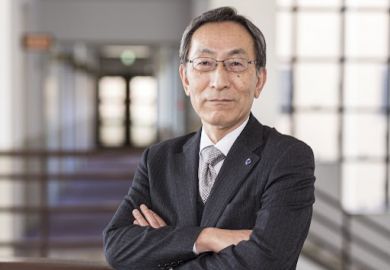The Biotechnology and Biological Sciences Research Council (BBSRC) has denied that its decision to delay the start of all new researcher-initiated grants until next year reflects fears of budget cuts in the coming spending review.
Grant letters for the most recent round of “responsive-mode” applications were sent out in July. However, a fortnight later, grantees were informed that even applications requesting a starting date prior to 1 January 2016 would not be activated until on or after that date.
They were told that the move had been decided upon “in order for BBSRC to manage its budget effectively, allowing for additional investments whilst also maintaining our responsive mode commitments and success rate…which for this round was 22 per cent”.
The move could cause problems for researchers whose salaries are dependent on grant income. The letter makes clear that requests to extend existing grants to cover the gap “will be declined”. However, “where a research grant has been confirmed, research contracts can be bridged using departmental funds”.
Stephen Curry, professor of structural biology at Imperial College London and vice-chair of the pressure group Science is Vital, wondered whether fears about November’s spending review might explain the unusual move.
“Given that [research councils] have been asked by the Department for Business, Innovation and Skills to model possible cuts of 25 per cent and 40 per cent…this looks to me like anticipation of a Treasury squeeze on the research budget,” he said.
“Coming alongside the Higher Education Funding Council for England’s recent cut of £150 million to the university teaching grants, this looks like another ominous symptom of impending trouble for UK research. I hope George Osborne's determination to make the UK the best place in the world to do science will be backed by the investment it needs.”
A BBSRC spokesman said that the research council had delayed the start of grants before, “most recently in 2010, when we delayed some into 2011”. The last major spending review was also held in 2010, but the spokesman denied that the current delay was linked to the impending review.
Melanie Welham, executive director for science at the research council, said: “The BBSRC has been managing some additional large investments in programmes that are vital for keeping the UK at the forefront of emerging bioscience…We are actively managing the total budget by delaying the start date of the next two responsive mode rounds by just a few months.”
Asked for examples of the additional investments, she cited the synthetic biology research programme. Three synthetic biology research centres, costing £40 million, were unveiled in 2014, and another £40 million programme establishing three more centres was announced earlier this year by Vince Cable, who was secretary of state for business, innovation and skills at the time. The BBSRC is providing £10 million.
Concerns have been expressed about the government’s tendency in recent years to channel new spending into large, “announceable” initiatives to which research councils are often expected to contribute.
Professor Welham said: “BBSRC has anticipated these additional investments, which is why it is taking these steps as part of a responsible financial management approach.”
The BBSRC’s overall grant success rate in 2014-15 was 26 per cent, it was recently revealed: the third consecutive annual fall of one percentage point.
后记
Print headline: Grant delay ‘unrelated’ to spending review




